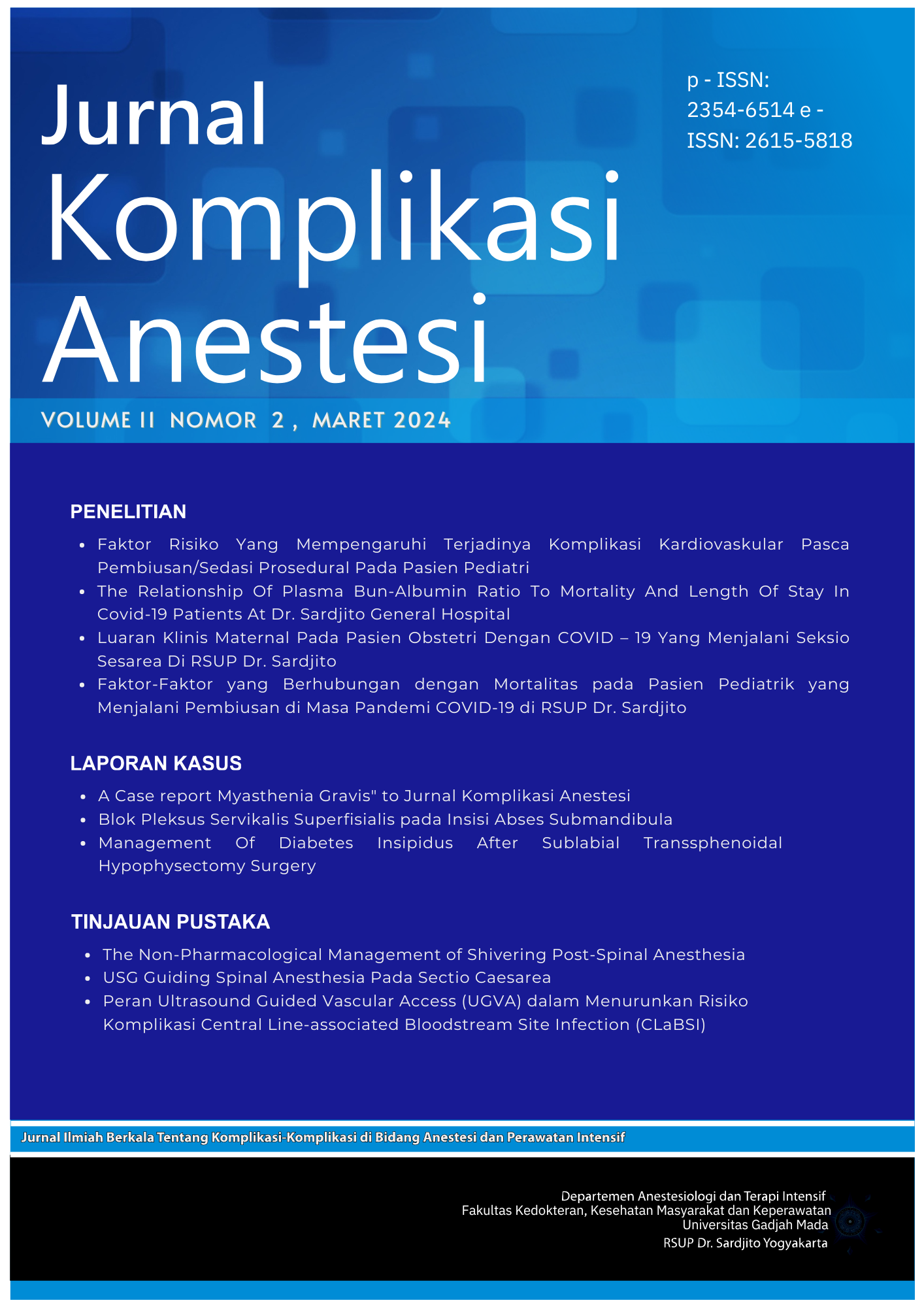Hubungan Rasio Bun-Albumin Plasma Terhadap Mortalitas dan Lama Rawat Pasien Covid-19 Di RSUP Dr. Sardjito
Abstract
Background: The increasing incidence of the COVID-19 pandemic has caused quite high mortality rates and length of stay in developing countries. Early detection is needed to reduce mortality rates. Early detection methods are reported, such as RT-PCR, immunoassay, and CT-scan, but they are expensive. Elevated BUN with decreased albumin is a laboratory condition produced by highly inflammatory states, such as COVID-19. The relationship between the plasma BUN-Albumin ratio in pneumonia sufferers has been proven to predict mortality and length of stay more strongly than the single parameter BUN or albumin. If proven to be relevant, these markers are advantageous because they are widely accessible, simple, and economical.
Objective: To determine the relationship between plasma BUN-Albumin ratio on mortality and length of stay for COVID-19 patients at Dr. Sardjito.
Methods: The research design used a retrospective cohort observational study method of patients with confirmed COVID-19 at RSUP Dr. Sardjito. Data on BUN and plasma albumin levels at admission were collected to calculate the optimal cut-off using the ROC curve. The relationship between BUN-Albumin ratio levels and mortality was analyzed using the chi-square test method followed by logistic regression in multivariate analysis. Analysis of length of stay using cox-regression survival analysis and is declared significant if it produces p < 0.05.
Results: The total research subjects were 1650 patients, with a median age of 56 years. The cut-off value for the BUN-Albumin ratio in predicting mortality was found to be 5.634, with a sensitivity of 65.0% and a specificity of 63.7%. (AUC = 0.689; 95% CI 0.663-0.715; p=0.001). Multivariate analysis showed that an increase in the BUN-Albumin ratio was an independent and significant factor as a predictor of mortality (OR 2.378; 95% CI 1.809 - 3.127) and patient length of stay (HR 0.655; 95% CI 0.574 - 0.748; p<0.001). Age, gender, use of positive pressure oxygenation, hypertension, obesity, COPD, and asthma were not independently associated with mortality.
Conclusion: An increase in the BUN-Albumin ratio is independently and significantly associated with an increased risk of mortality and length of stay in COVID-19 patients.
Copyright (c) 2024 Githa Rizki Primastuti, Calcarina Fitriani R. W., Akhmad Yun Jufan

This work is licensed under a Creative Commons Attribution-NonCommercial-ShareAlike 4.0 International License.
The Contributor and the company/institution agree that all copies of the Final Published
Version or any part thereof distributed or posted by them in print or electronic format as permitted herein will include the notice of copyright as stipulated in the Journal and a full citation to the Journal.

